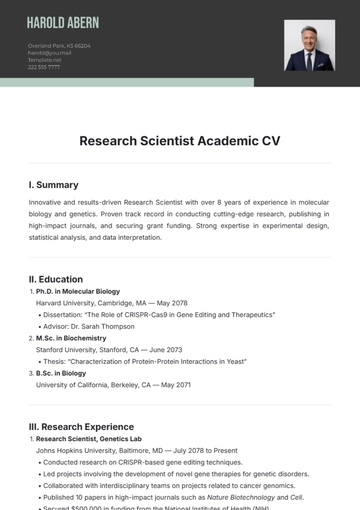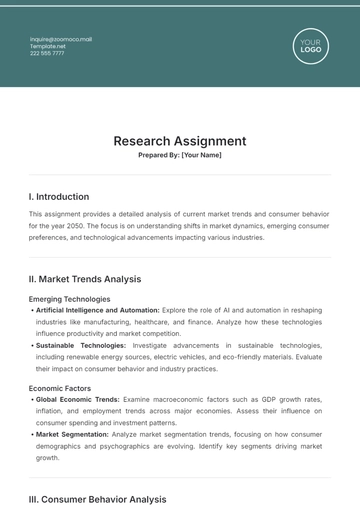Academic Qualitative Research
Research Title: Understanding Consumer Preferences for Organic Skincare Products
Researcher:
Name: [Your Name]
Email: [Your Email]
Date: July 25, 2055
1. Introduction
1.1 Background
The rising demand for organic skincare products reflects growing consumer awareness of health and environmental issues. This research explores the factors influencing consumer preferences for these products.
1.2 Research Questions
What are the primary reasons consumers choose organic skincare products?
How do consumers perceive the effectiveness of organic versus conventional products?
What role does eco-friendly packaging play in consumer decision-making?
1.3 Objectives
To identify key factors driving consumer preference for organic skincare.
To compare consumer perceptions of effectiveness between organic and conventional products.
To assess the impact of packaging on purchase decisions.
2. Literature Review
The literature review covers recent studies on consumer behavior related to organic products, focusing on perceived benefits and environmental concerns. Key theories include the Health Belief Model and the Theory of Planned Behavior.
3. Methodology
3.1 Research Design
A qualitative research design was employed, utilizing in-depth interviews and focus groups to gather rich, detailed insights.
3.2 Participants
Participants were selected through purposive sampling, including 30 individuals who regularly purchase organic skincare products. Demographics included a mix of age, gender, and socio-economic backgrounds.
3.3 Data Collection Methods
Data was collected via semi-structured interviews and focus groups, each lasting approximately 60 minutes.
3.4 Data Analysis
Thematic analysis was used to identify recurring themes and patterns in the qualitative data.
4. Findings
4.1 Overview
The study revealed that health benefits and natural ingredients are the main drivers for choosing organic skincare. Packaging and brand reputation also significantly influence consumer choices.

4.2 Themes and Patterns
Health Consciousness: Consumers value the perceived health benefits of organic ingredients.
Environmental Concerns: Eco-friendly packaging is an important factor for a significant portion of respondents.
Brand Trust: Established brands with positive reputations are preferred.

4.3 Case Studies / Examples
Case studies included detailed feedback from participants on specific brands such as GreenGlow and PureEssence.
5. Discussion
5.1 Interpretation of Findings
The findings suggest that health and environmental concerns are central to consumer preferences for organic skincare. This aligns with the Health Belief Model, which emphasizes the importance of perceived benefits.
5.2 Implications
Brands should focus on highlighting the health benefits and environmental credentials of their products. Eco-friendly packaging can enhance brand appeal.
5.3 Limitations
The study's sample size was limited to 30 participants, which may not fully represent the broader consumer population. Additionally, the research focused solely on organic skincare products.
6. Conclusion
The research highlights the significant role of health benefits and environmental concerns in consumer preferences for organic skincare products. Brands that address these factors are likely to gain a competitive advantage.
6.1 Recommendations
6.2 Future Research Directions
Future research could explore consumer preferences for other organic product categories and investigate regional differences in organic product consumption.
7. References
Smith, J. (2053). Consumer Behavior and Organic Products. Green Publications.
Johnson, L., & Taylor, M. (2052). Eco-Friendly Packaging and Consumer Choices. Environmental Studies Journal, 15(4), 233-245.
Research Templates @ Template.net
































